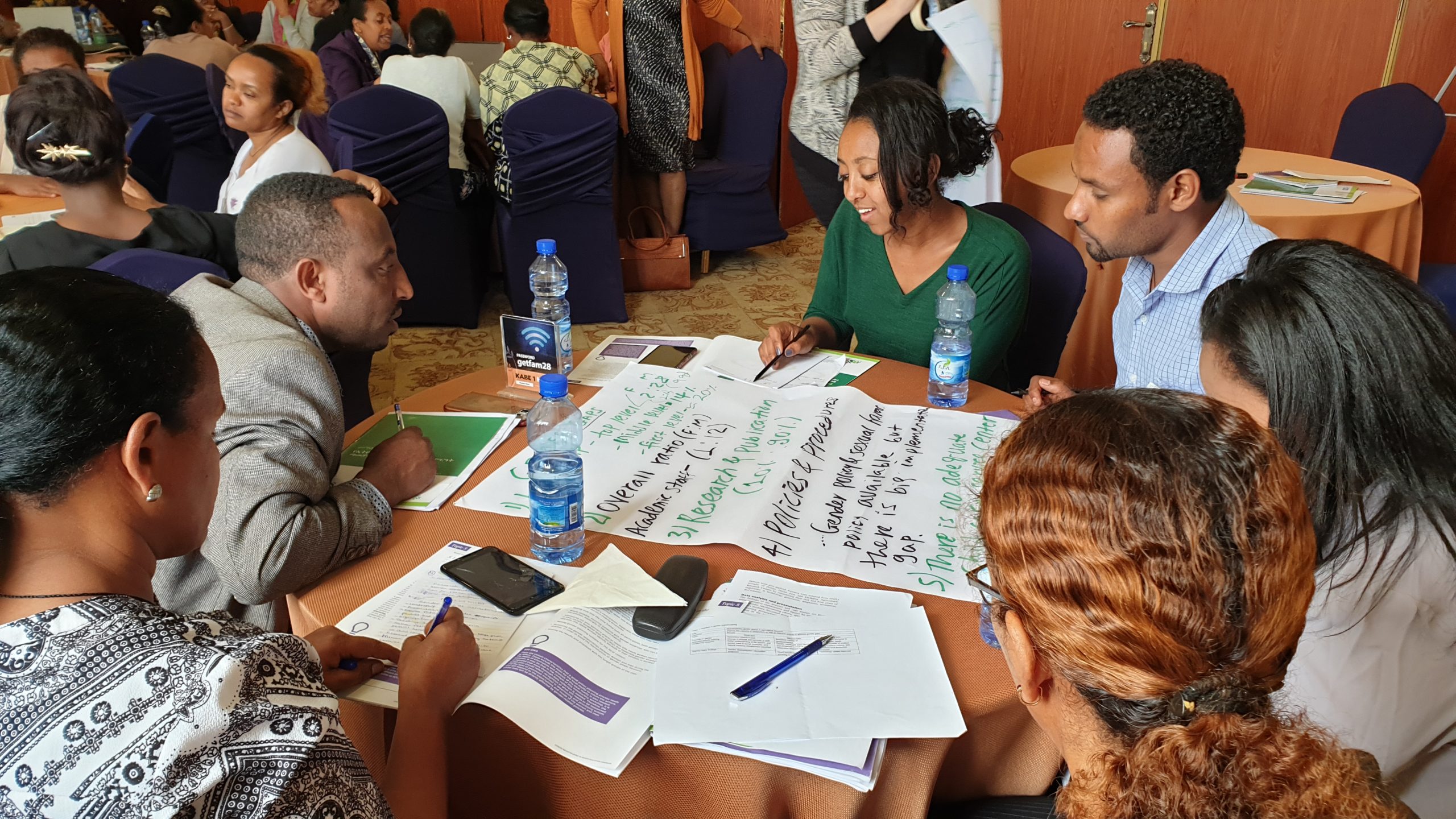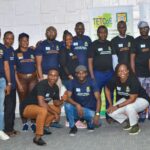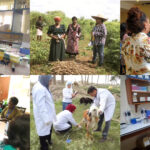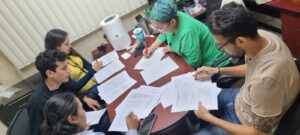
Tackling the gender divide in African research systems
To produce the most relevant and rigorous research we need the voices, ideas and expertise of women and men. But research and knowledge systems are often very unequal. Over the last year we’ve worked with partners in Uganda and Ethiopia to grow national networks, with lecturers in Ghana and Nigeria to create more inclusive learning environments and developed a course on gender-responsive research with partners in Kenya and the US. This article is based on a series of interviews with INASP staff, Associates and partners.
National platforms
There are many inequities in academia – from opportunities to access training and support, to getting grants and publishing, to management structures and campus cultures. They mean that vital research voices are underrepresented or missing entirely from efforts to tackle key development challenges. Women often face greater obstacles than men.
In Ethiopia and Uganda hundreds of dedicated and committed women and men from academia and research have nurtured and grown two national networks of researchers – which are striving to make their research systems more gender equitable.
The Ethiopian Gender Learning Forum (EGLF) and the Gender Equity in Research Alliance (GERA) in Uganda, and are a collaboration between INASP, founding partners Ethiopian Academy of Sciences (EAS) and Uganda National Council for Science and Technology (UNCST), and the Swedish International Development Agency, Sida.
National initiatives that unite academics across institutions can be powerful in building momentum and mobilising academics and researchers to work together to identify and address the barriers, according to Mai Skovgaard, INASP’s programme specialist for gender.
“These networks were created so that individuals – women and men – can work together to raise awareness of gender equity challenges in research and higher education institutions and empower them to lead from the front in addressing these challenges,” explains Mai. During 2022, INASP worked alongside EGLF and GERA as they grew their national reach and introduced strategies and structures for sustainability and to embed themselves firmly into the research system.
Embedded into research systems
The EGLF brings together representatives, known as ‘gender champions’, from higher education and research institutions across Ethiopia. It has more than 70 individual and institutional members. Its vision is to be “a cohesive and integrated platform for fostering gender equity and equality in Ethiopia’s knowledge system.” Its mission is to promote gender equity and equality in Ethiopian higher education and research institutions.
Prof. Yalemtsehay Mekonnen from Addis Ababa University, Ethiopia is an EGLF champion. She says there is a good mix of members in the forum – from early to mid-career to experienced scholars. She explains: “The exchange is good – there could be fresh and new ideas and there is an opportunity for experience-sharing and role-modelling. Because I’m senior I can share my experiences and it’s also good for me to see the motivation and the vision that the younger scholars or female academicians have that come from different parts of the universities of Ethiopia and research institutes.”
A shared vision
GERA shares a similar mission – to achieve “a gender equitable research system that supports national development.” The alliance’s volunteer network draws together researchers of various disciplines from across Uganda’s higher education institutes, as well as members from government and the private sector. GERA also operates on a regional basis with chapters covering central, eastern, northern and western Uganda.
The alliance has developed an online platform where members can share their experiences, collaborate on research projects, share resources, and discuss the issues they are most passionate about. Sarah Nabachwa, from Mbarara University of Science and Technology, thinks it has the potential to drive real change.
“When we achieve gender equity there are so many benefits,” she explains. “I see empowerment and women who are confident. I see a woman who is confident to change policy in government, who can make decisions that affect her own life in health and education. We want to see women doing research on sensitive topics.
“I have seen women are not daring enough to enter some zones. There are some topics you cannot explore when you are a woman researcher, you either must bring a man to shield you or you cancel the research,” she adds. “If we achieve gender equity and gender equality, the global goal is having a more productive economy because with more women on board there are more job opportunities, more competent individuals, more healthy populations. We will see a happier society. That is the bigger goal for me. If we can take off and reach as many people as we can, there will be a spill over effect.”
Between 2019 and 2022, more than 100 people have participated, reaching over 40 institutions in Uganda and around 70 institutions in Ethiopia.
Gender champions, role models
The gender champions are incredible role models who know that for equality to exist, academia must work with policymakers and communities to reimagine systems, break down barriers and establish new ways of working so that everyone has an equal say, and everyone is valued.
Mai concurs: “According to UNESCO, women make up only 33.3% of researchers globally, publish less than men, and are found in lower numbers as you go up the ranks of academia. If women’s voices and priorities are substantially missing from research and knowledge, the solutions, products, and technologies being developed are less likely to be responsive to the needs and concerns of half of the world’s population.”
The evidence so far is that women’s voices are being heard and people are taking notice of their work. The University of Gondar in Ethiopia has created a call for research grants specifically for women academics. Livingstone University in Uganda has formed an internal gender committee, comprising three women and three men. The committee has been tasked with developing a gender policy for the university.
More inclusive learning
As we have learnt from our work in East Africa, addressing gender in HE and research needs to start much earlier. Last year during October and November, Mai and Prof. Flora Fabian, INASP Associate and gender expert from Tanzania also delivered gender awareness and gender responsive pedagogy training to lecturers across 12 universities in Ghana and Nigeria, at the request of the Partnership for Enhanced and Blended Learning (PEBL) in West Africa.
Mai explains: “We introduced the lecturers to gender terminology and the purposes of gender mainstreaming within institutions. We also drew from the framework developed by the TESCEA partnership to help them think about how they can make their classrooms more gender responsive and how this in turn may lead to more equitable outcomes for their women and men students.”
At the end of the training the lecturers produced actions plans with ideas of how to make their teaching more gender responsive. “What I have learned from the training and the materials shared on gender responsive pedagogy is the fact that inculcating gender responsiveness in teaching and learning is a must for a rounded education. Each facilitator of learning should make it a priority to be gender responsive in his / her teaching,” explains Prof. Olapeju O. Aiyelaagbe, University of Ibadan.
Designing research with gender in mind
It is not only the classrooms and systems for research that we need to think about, but also about the research questions we ask and the methods we use to explore them.
In partnership with the Mawazo Institute in Kenya and the Global Centre for Gender Equality at Stanford University, we designed a micro-course in gender responsive research design which was piloted in early 2022. By enabling Mawazo fellows to apply a gender lens when designing, executing and reporting their research, the course aimed to ensure that their research responds to the needs and priorities of both women and men. In 2023 we plan to integrate gender responsive research design into the training offered through INASP’s e-learning platform.
For more information about INASP’s gender programmes, contact Mai Skovgaard.
Interview by Sarah Holmes

 Previous Post
Previous Post Next Post
Next Post


